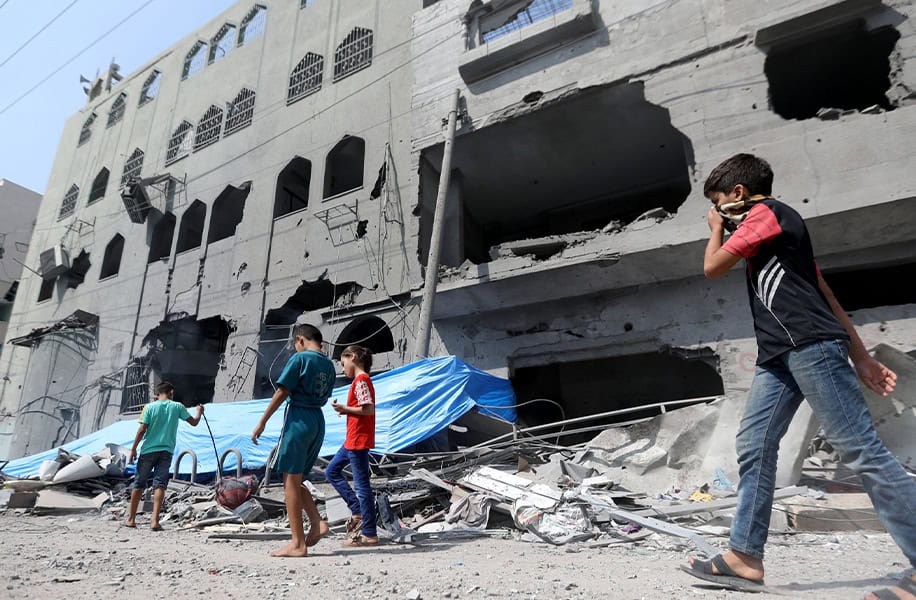A lot has happened in the first three months of 2025. For many leading countries this short period would be recorded in history as a time of big changes. Although the origin of many big changes may be traced to the USA, other leading countries were impacted in a big way and some of the smaller countries caught in the web of changes were impacted in significant ways too.
Initially there were some indications of not just some changes for the better but even of the possibility of a few big breakthroughs. However by and large these hopes have been belied.
The ceasefire in Gaza in January, while certainly welcome, appeared too fragile vulnerable to raise high or durable hopes, and the enduring aggressiveness of Netanyahu-led Israel, this leader’s own close identity and comfort with highly aggressive policy as well as the continuing support for this from leading western countries has led to the Palestinians again being faced with almost the same extremely high risks as before.
In the case of Ukraine-Russia war, the hopes that arose earlier this year for peace were of great significance as these also involved the increasing possibilities of more friendly and peaceful relations emerging at a wider level between the USA and Russia, as the Ukraine war had started against the background of the USA and some of its important NATO allies using Ukraine as a proxy against Russia to weaken Russia. However, at the time of writing this, these peace prospects have weakened somewhat although some hopes still remain. Ending this war as early as possible, preferably on a note of durable peace and goodwill, must remain one of the highest priorities of our deeply troubled world.
The overall humanitarian crisis in the world, which was a deeply worrying one at the end of 2024, appears to be worsening with the situation being particularly grim in the Democratic Republic of Congo and some neighbouring areas, Myanmar, Sudan and its neighbourhood.
In several countries in several important contexts the situation is deteriorating. However it is important to emphasize that often the change is not from good to bad, but from bad to worse. In the USA, for instance, criticism of ongoing onslaught on public welfare and civil liberties reflects a worsening situation, but the situation had been highly unsatisfactory and deteriorating for years or decades earlier too. The arbitrary and unjust resort to tariffs should be condemned, but we should not forget that the international trading system and the WTO regime as well as several bilateral and free trade agreements had been unjust earlier too. Germany’s resort to increasing militarism is deeply worrying but some of the country’s earlier policies too had raised troubling questions. Britain’s stand on international issues has been reflecting a growing distance from real needs, and this has increased further. The President of France likes to speak of things grand and great without having roots in reality, a tendency that has increased further in recent times.
Unfortunately, there is little to suggest that the big changes that we have been seeing in recent times are in any way taking us closer to resolving the most serious and significant problems of our world. These changes reflect the narrow thinking of world leadership based on narrow agendas. These have no vision of resolving the most important and threatening problems while there is still time to do so. If anything, the world appears to be moving further away from the most important objective of resolving the most serious, life-threatening problems in time.
The overwhelming and most important reality of the word today is that the basic life-nurturing conditions of the world are threatened at two levels—firstly the accumulation of weapons of mass destruction and secondly, a dozen or so serious environmental problems that, on their own and together with each other, can be very threatening.
Resolving these life-threatening problems in time requires increased cooperation of all the world’s people and nations for according top priority to this and then working together to resolve these as early as possible within a framework of justice, peace and democracy. Unfortunately the world as it is structured and governed today appears to be more and more incapable of achieving this highest priority task of great urgency for saving this and future generations, our children and grandchildren. Hence today a great mobilization of the world’s people who are committed to justice, peace, safety and environment protection is needed more than at any other point of history to save life on earth while working within a framework of justice, peace and democracy.
(The writer is Honorary Convener, Campaign to Save Earth Now. His recent books include Protecting Earth for Children, Planet in Peril, A Day in 2071 and Earth without Borders)

